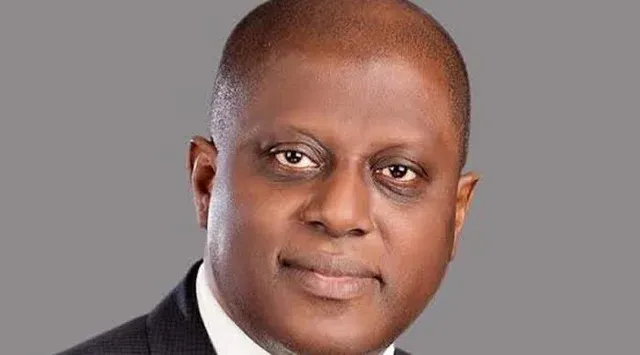Naira Woes: Blame Your Bad Back & Fancy Diplomas! CBN Governor Cardoso Throws Shade at Sickly, Well-Educated Nigerians
In a jaw-dropping revelation that left members of the House of Representatives reeling, CBN Governor Yemi Cardoso dropped a financial truth bomb during Tuesday's session. It turns out that Nigerians have been splurging quite extravagantly, but not on luxury goods or fancy vacations – rather, on education and healthcare abroad.
Cardoso, renowned for his prowess with data, presented staggering figures: a whopping $28.65 billion spent on foreign education between 2010 and 2020 alone. To put that into perspective, it's enough to provide every Nigerian student with a lifetime supply of textbooks, perhaps even with a few energy drinks for those late-night study sessions. And as for medical expenses overseas? A cool $11 billion during the same period, with some Nigerians deeming local hospitals "not good enough" for their needs.
The combined total? A staggering $40 billion drained from Nigeria's foreign exchange reserves. To contextualize, this sum surpasses the entire piggy bank of the Central Bank itself. Essentially, while individuals may be enjoying tea in Switzerland or getting medical procedures done abroad, they're inadvertently siphoning resources from their homeland.
Cardoso emphasized, "Given this data, it is crucial to highlight that between 2010 and 2020, foreign educational expenses amounted to a substantial $28.65 billion, as per the CBN publicly available balance of payment statistics. Similarly, medical treatment abroad has incurred around $11 billion in costs during the same period. Consequently, over the past decade, foreign exchange demand for education and healthcare has totaled nearly $40 billion. Notably, this amount surpasses the total foreign exchange reserves of the CBN. Mitigating a significant portion of this demand could have resulted in a considerably stronger naira today."
While Cardoso refrained from pointing fingers directly, he subtly suggested that curbing spending on foreign education and healthcare could alleviate some of the economic challenges, potentially stabilizing the fluctuating value of the naira.
The atmosphere in the House chamber was palpably tense as lawmakers realized the implications of their personal choices. Despite their prestigious degrees and preference for overseas medical treatments, they couldn't ignore the impact on the nation's economy.
So, what's the key takeaway? Perhaps it's time to reconsider the allure of sending children abroad for education or seeking medical treatments overseas. Supporting Nigerian institutions might not only be financially prudent but could also lead to pleasantly surprising outcomes. After all, investing in local education and healthcare might prove to be not only economically beneficial but also culturally enriching.
In conclusion, while knowledge is undoubtedly powerful, it can also come at a significant cost. Making informed choices that prioritize the national interest could pave the way for a more prosperous future where laughter isn't overshadowed by concerns about exchange rates.
Watch the video short below
